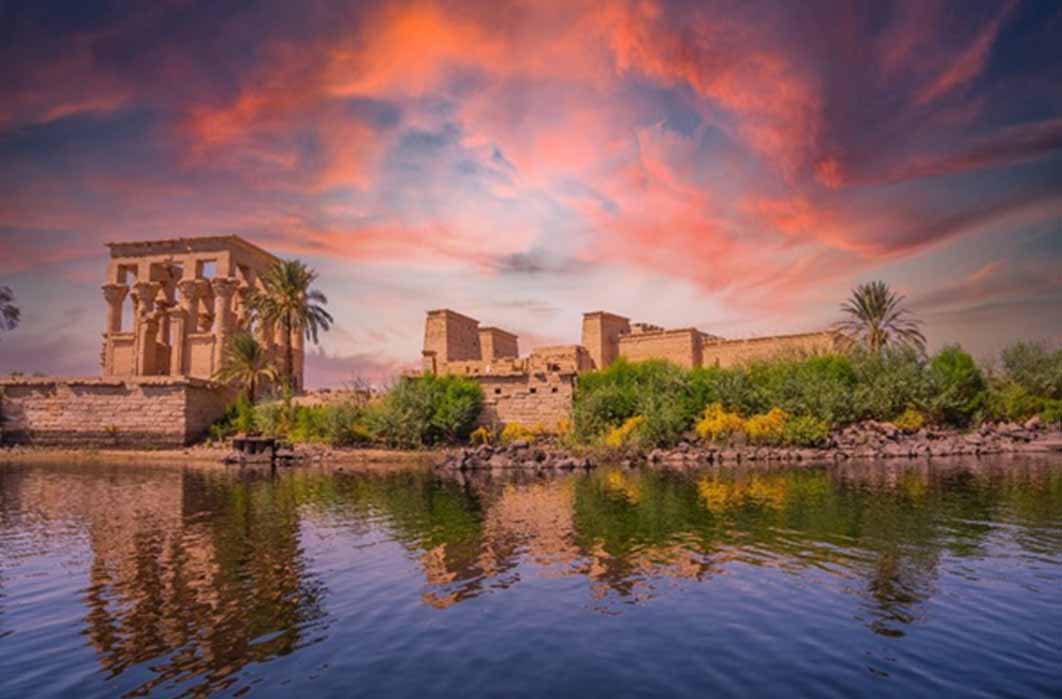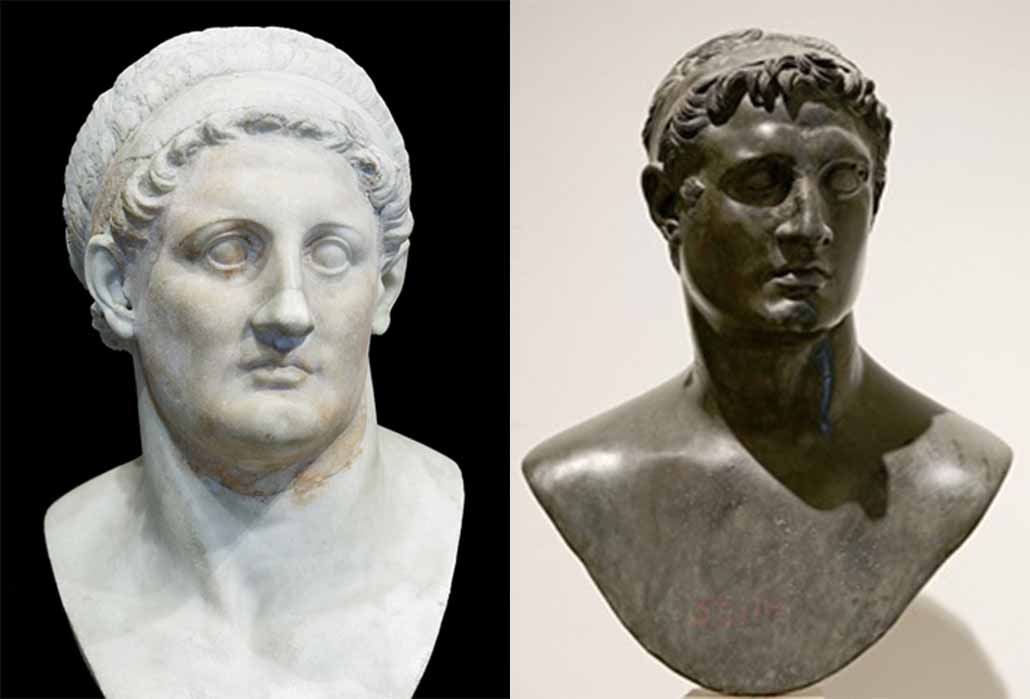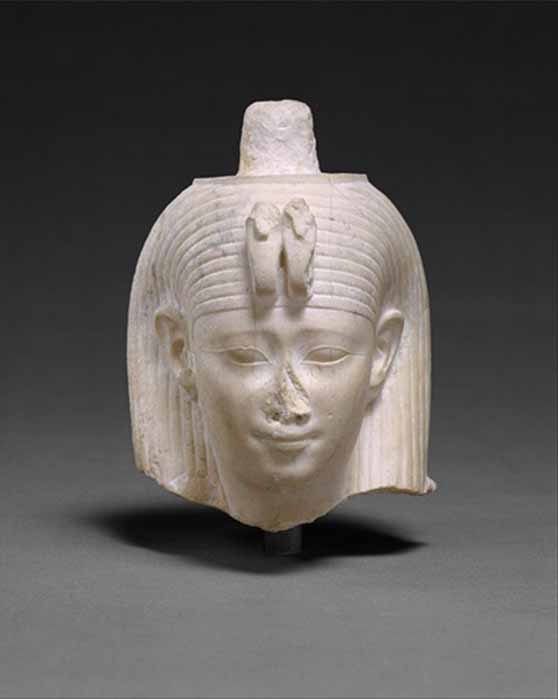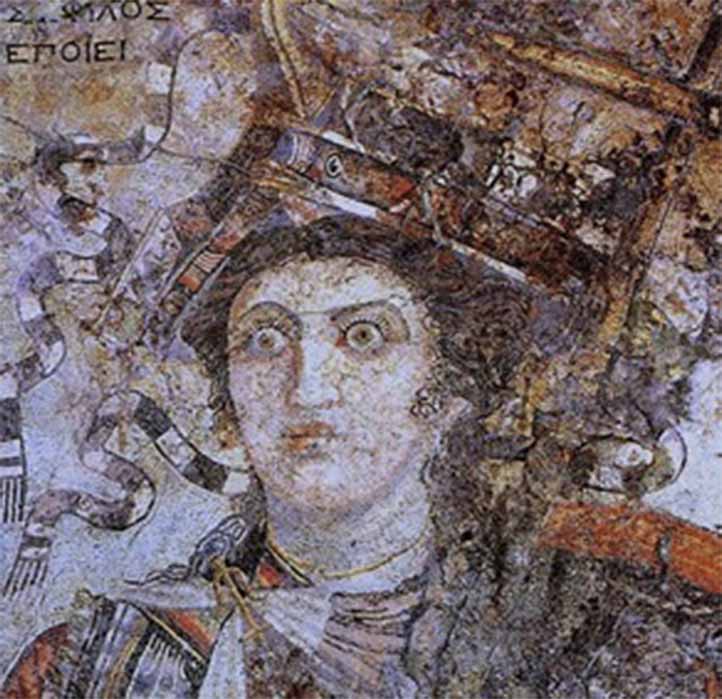
The Golden Age of Ptolemaic Egypt (332-14 BC)
Alexander the Great conquered Egypt in 332 BC and after his death, his empire was divided. In 305 BC Egypt fell to his general Ptolemy I Soter. The Ptolemaic Dynasty was a powerful Hellenistic state extending from southern Syria in the east, to Cyrene to the west, and south to the frontier with Nubia. Alexandria became the capital city and a center of Greek culture and trade. To gain recognition by the native Egyptian populace, the Ptolemy rulers named themselves as the successors to the pharaohs, took on Egyptian traditions, had themselves portrayed on public monuments in Egyptian style and dress, and participated in Egyptian religious life. The last ruler from the Ptolemaic Dynasty was Cleopatra VII. When Octavian – later Augustus – defeated Mark Antony and Cleopatra, Egypt became a Roman province.

A Hellenistic bust depicting Ptolemy I Soter, third century BC, the Louvre, Paris (Public Domain) and a bust excavated at the Villa of the Papyri depicting Ptolemy II Philadelphus, who is believed to have been the one to establish the Library as an actual institution, although plans for it may have been developed by his father Ptolemy I Soter (CC BY-SA 2.0)
Rise of a Ptolemaic Empire
Alexandria was founded in 331 by Alexander the Great and the foundling city was expanded by Ptolemy Sorter, who established I as his capital and brought Alexander’s body to be entombed in the city, to add to its prestige. During his reign, Ptolemy I Soter expanded the holdings of Egypt, creating an extended empire that included Cypress and Cyrene. He opposed the King of the Seleucids for control of the Levant and battles were won and lost over the next 100 years.
In 285 BC, Ptolemy I was succeeded by his son and co-ruler, Ptolemy II Philadelphus. Ptolemy II is known for having increased the prestige of Alexandria by establishing a festival, the Ptolemaieia, which was supposed to be on par with the Olympic Games. It consisted of a series of floats depicting various religious traditions in the city. Ptolemy II also is known for having been engaged in several conflicts in the ongoing wars with the Seleucid kings. During his reign, Egypt became one of the wealthiest and most powerful of the Hellenistic kingdoms. A Ptolemaic empire emerged across the lands of the eastern Mediterranean.

Head Attributed to Arsinoe II, depicted as an Egyptian divinity. Metropolitan Museum of Art (CC0)
Another custom attributed to Ptolemy II is brother-sister marriage among the Ptolemaic monarchs. He married his full sister Arsinoe II and they both took the same epithet, Philadelphus, which essentially means ‘sibling-loving’. This practice was soon imitated by common Egyptians.
Successors Ptolemy III to Ptolemy VI
In 246 BC, Ptolemy II Philadelphus was succeeded by Ptolemy III Euergetes who governed from 246 BC to 221 BC. His reign was also marked by the continued conflict with the Seleucids. Ptolemy III Euergetes went to war with the Seleucids after the murder of his sister Berenice, who had been married to Antiochus II.





